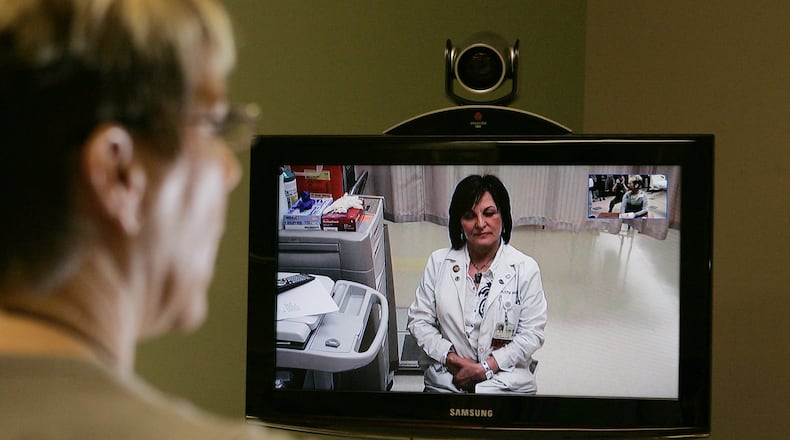Now, the question is whether these changes will become permanent. Two U.S. Senators, including Rob Portman of Ohio, have introduced a bill to make telehealth permanent.
“It’s a good idea because it helps reach people who have challenges getting treatment,” said Scott Rasmus, executive director of the Butler County Mental Health & Addiction Recovery Services Board. “Right now, the majority of our clients, between three-quarters to 80%, are being treated through telehealth.”
Those challenges include transportation to obtain treatment as well as coronavirus COVID-19 fears of contracting the potentially deadly virus en route to or at the treatment location, he said. Rasmus said it can be helpful to the client and the therapist, who might also have concerns about contracting COVID-19.
“Adults can do therapy as long as they are comfortable with the setting,” Rasmus said.
He said there are challenges with younger, pre-teen youth and families as it can be hard to connect with a therapist and be attentive for the 30 minute to one hour appointment.
Rasmus said the telehealth option works well for adults who need therapy or obtaining prescription medicine treatment.
“I recommend continuing the telehealth program,” Rasmus said. “It fits a niche with a large portion of the population.”
Before the pandemic, there were some options for remote appointments, but there were still restrictions that limited how much this was actually an option. New clients needed to first have an in-person appointment. Remote services had to be provided via video chat, and not everyone has the technology or internet access.
But an emergency waiver allowed for providers to be paid for these services even if given remotely on the first visit and even over the phone instead of requiring video chat.
On June 30, Portman (R-OH), and Sen. Sheldon Whitehouse (D-RI) introduced the Telehealth Response for E-prescribing Addiction Therapy Services (TREATS) Act to support the expansion of telehealth services for substance use disorder treatment.
The bill would build upon the Trump Administration’s action to waive regulatory restrictions for accessing care in the wake of the COVID-19 pandemic. While the temporary waivers let patients continue their treatments and counseling virtually, they are time limited and will expire at the conclusion of the public health emergency.
The TREATS Act would extend telehealth flexibility by making permanent waivers, including the ability to provide medication-assisted treatment and other necessary prescriptions, without needing a prior in-person visit and the ability to bill Medicare for audio-only telehealth services.
Portman said in a statement that the roll out of telehealth waivers has both helped patients maintain access to care safely at home and increased access to care for those that didn’t otherwise have access to in-person treatment.
“As we move forward and look to life beyond this pandemic, we must make sure that the advances to care and access that telehealth is currently providing is not lost and that’s exactly what this bill will do,” Portman stated, after bill was introduced. “I urge my colleagues to join me in supporting this common-sense legislation to make telehealth a permanent part of substance abuse disorder treatment.”
Staff Writer Kaitlin Schroeder contributed to this report.
About the Author

